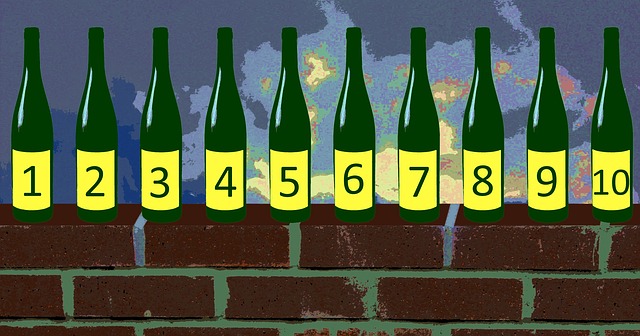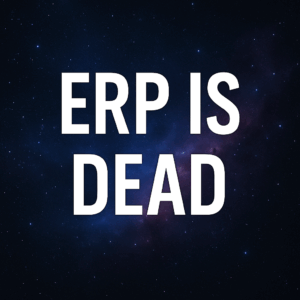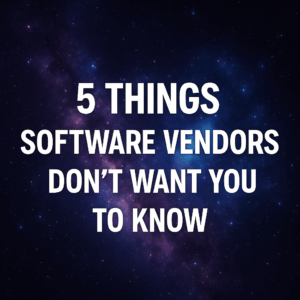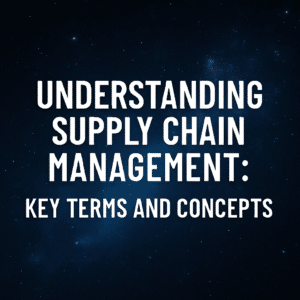Customer relationship management (CRM) software is a powerful set of tools used by sales organizations throughout the world. These systems have the ability to automate sales processes, better manage sales teams, and grow top-line revenue growth. They can be an integral part of an organization’s long-term digital transformation strategy and roadmap.
Unlike the top ERP systems, which generally impose changes to an entire organization, CRM software can be implemented in a targeted way to focus on sales and customer service needs. There is also a plethora of options to choose from, ranging from big vendors such as Salesforce to niche providers like Sugar CRM and ERP vendors such as Oracle and Microsoft.
But which CRM system is best for you and your organization? We recently created an independent ranking of the top 10 CRM systems in the market, which was not paid for or influenced by any ERP vendors. In addition, my team and I at Third Stage Consulting are 100% unaffiliated with software vendors.
We used a number of criteria to rank these systems, including:
- Market share
- Functionality and features
- Average total cost of ownership
- Integration to ERP systems and other third-party applications
- Customer satisfaction
- Ease of implementation and overall risk
This video outlines some of the details behind our top 10 CRM software ranking, which is also explained below:

Table of Contents
Toggle10. HubSpot CRM
HubSpot CRM is a simple and inexpensive option – especially for small and mid-size organizations. The product handles basic salesforce automation, lead management, and sales pipeline functions and is simple to use. It also integrates with HubSpot’s marketing automation software, which allows you to create web landing pages, capture leads, create email marketing campaigns, and seamlessly integrated leads with the CRM tool.
The downside of the product is that it is fairly limited in its capabilities. It works fine for smaller sales teams, but larger and more complex organizations with larger sales teams may find the product too simplistic for more advanced needs such as tracking commissions, tracking to quotas, managing sales teams, and other common CRM features.
9. Odoo CRM
Odoo CRM is another popular option for small and mid-size organizations. This open-source software also provides broader ERP functions such as inventory management, financials, procurement, and other enterprise-wide capabilities. Or, if you already have an existing ERP system, it integrates well with other ERP systems. It is also relatively flexible and modular when compared to other CRM systems in our ranking.
Like Hubspot, Odoo CRM is free to try out. The biggest weakness is that it can be too simplistic for more advanced needs. In addition, it requires a bit more internal technical proficiency due to its open-source format, which may require more internal technical skills than many small businesses can afford.
8. Sage CRM
Sage CRM is another common option for smaller and mid-size organizations, but its breadth of capabilities is greater than Hubspot, Odoo, and some of the other CRM software in our top 10. For example, it also provides more robust capabilities in customer service, forecasting, and marketing. It is also strong in automating the quote, proposal, and order process, which can be especially beneficial for companies that offer custom-tailored products or services.
The system also integrates relatively well with third-party systems and allows for either on-premise or cloud implementations, which provides customers more options and flexibility. Its biggest downside is that it isn’t an extremely common CRM system in the market when compared to other options. It can also be a good option for those that aren’t yet sure if they want CRM vs. ERP software longer term.
7. Sugar CRM
Sugar CRM is another good option for mid-size companies. In addition to strong functionality in core sales areas such as pipeline and lead management, it also provides workflows to automate customer service management processes. This makes it a particularly good fit for services companies such as financial services, professional services, and staffing / recruiting firms.
Since the product is not extremely well-known and does not have as large of an install base as some of the other options in our top 10, it does not have as robust of an ecosystem of consultants and systems integrators. It also doesn’t scale as well for larger organizations when compared to some of the other CRM systems in our ranking.
6. SAP CRM
SAP CRM is a common option for larger organizations and sales teams. In addition to base sales automation, SAP CRM can do a variety of other things, such as customer service, contracts, and billing. It also provides a robust toolset to manage large global sales teams, such as managing territories, tracking commissions, and sales forecasting.
SAP CRM is part of the broader SAP S/4HANA ERP toolset, which is built for larger companies. Other options include C/4 for customer management, which allows customers to expand its SAP footprint into other processes within their organizations. The biggest downsides of the software are its complexity and relative inflexibility when compared to other CRM systems in our ranking. It is also among the top ERP systems in the market, which are outlined in this video:

5. Oracle CRM Cloud
Like SAP, Oracle CRM is a common option among Fortune 1,000 companies and other larger sales organizations. In addition to usual CRM functions such as pipeline and lead management, Oracle CRM Cloud also enables more sophisticated processes such as managing territories, tracking commissions, and sales planning and performance.
Perhaps the product’s biggest strength is its focus on the overall customer experience – not just sales automation. It also uses machine learning to look for “signals” in the pipeline to indicate what actions should be taken to optimize results. It is also a very good option for teams selling more complex and custom products, which is enabled by its configure/price/quote (CPQ) capabilities. This is something that not many CRM systems can handle well.
The product’s biggest weakness is that it is still making the transition to the cloud, so it is still playing catchup when compared to some of the more established cloud providers in our top 10 list. Oracle is also among the top supply chain management systems, which are outlined in the video below:

4. NetSuite CRM
NetSuite is one of the most commonly used CRM systems by smaller and mid-sized organizations. It is relatively easy to use and one of the first cloud-based CRM products, which gives it a head start relative to some of its competitors that are still transitioning from their legacy on-premise products.
The product’s strengths include linkages to marketing automation, strong mobile capabilities, and sales functionality for companies with strong partner sales teams. It also integrates well with its ERP, quoting and eCommerce tools. The product’s biggest downsides are that it isn’t as robust as some of the “bigger” CRM systems and can be more difficult to customize to fit your needs, especially if you are part of a larger sales team.
3. Salesforce CRM
Salesforce is arguably the most recognized CRM provider. It burst on to the scene in the late 1990s by providing broader and deeper technologies designed specifically for sales teams, which the leading ERP providers did not provide at the time. It is also among the first pure cloud CRM providers, making its product more advanced in many ways.
Salesforce is a very flexible product with many configuration and integration options. In addition, it has created an open platform called Force.com, which allows third-party providers to create niche extensions and add-ons on the Salesforce platform. This provides customers with a great deal of flexibility and options.
This flexibility and range of options can also be a disadvantage. Many of our clients get bogged down in all of the options and often don’t have the internal technical sophistication to manage the complexities of the technology, architecture, and integration. The core product can also be too complex for smaller organizations whose needs are not that sophisticated.
This video provides an independent review of and deeper dive into the strengths and weaknesses of Salesforce CRM:

2. Zoho CRM
Even though it may not be as well-recognized as other options in our top 10, Zoho has a strong product with a fairly large install base. Because of its ease of use and broad capabilities, its product has a high NPS score and high ratings from a variety of analyst firms.
Some of Zoho’s unique features include strong omnichannel communications through social media and web meetings, as well as strong collaboration tools. Like Oracle CRM, Zoho CRM also has relatively strong artificial intelligence and predictive sales capabilities, which can have a material effect on the productivity and effectiveness of sales teams.
Its biggest downside is also its strength. It is very focused on doing CRM well, but unlike options such as Oracle, SAP, and Salesforce, its ability to expand its footprint into other parts of an organization is fairly limited. For this, Zoho users need to look to ERP software or other technologies to meet their needs outside of sales and CRM.
1. Microsoft Dynamics CRM
In addition to ranking well in our top 10 ERP systems, Microsoft Dynamics also has very strong CRM capabilities – enough to land it at the top of our list. In addition to the traditional Microsoft look and feel that many are accustomed to, it also integrates very well with other Microsoft tools, such as Office 365, Dynamics 365 ERP, and LinkedIn.
Microsoft Dynamics CRM also has a fairly robust lead scoring tool, as well as artificial intelligence to flag next steps or prospective accounts requiring more attention. Like Salesforce, Microsoft has also created an open platform called AppSource to allow third-party developers to create niche extensions and add-ons.
The downsides of the product include a high degree of flexibility. Even though this is generally viewed as a strength, many organizations lack the discipline and focus to implement these tools well. In addition, Microsoft has a notoriously weak partner channel, making it more difficult to find good implementation partners.
What is the Best CRM System?
Despite these rankings, it is important to first consider your unique needs, requirements, and priorities before deciding on the best fit for your team. While this top 10 list is intended to provide our analysis of the best systems, it is important to define your short-list based on priorities specific to your organization.
Please feel free to contact me if you would like to discuss your CRM options in more detail. My team and I are happy to be a sounding board as you continue your digital transformation journey!





